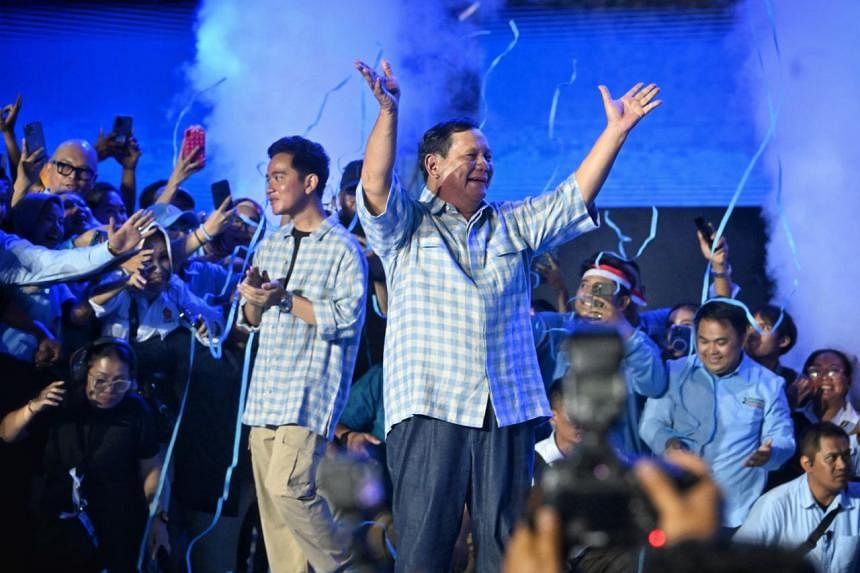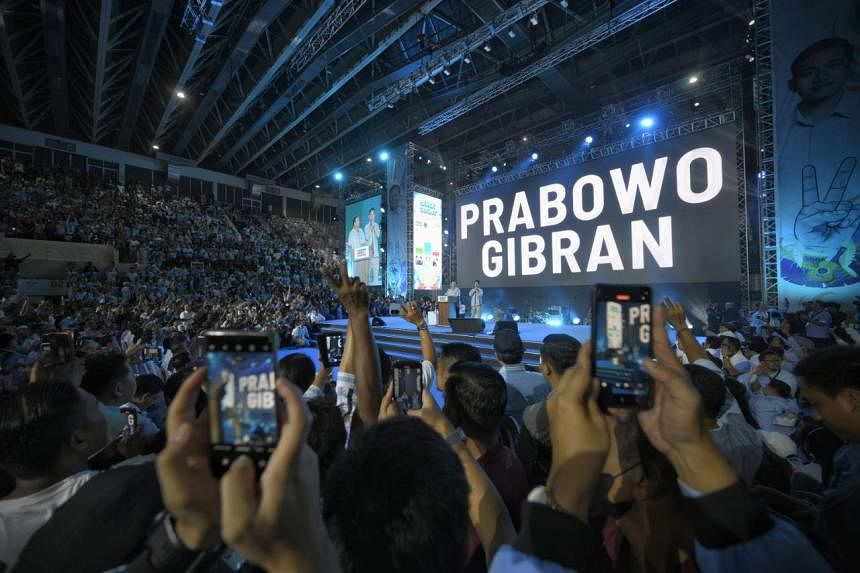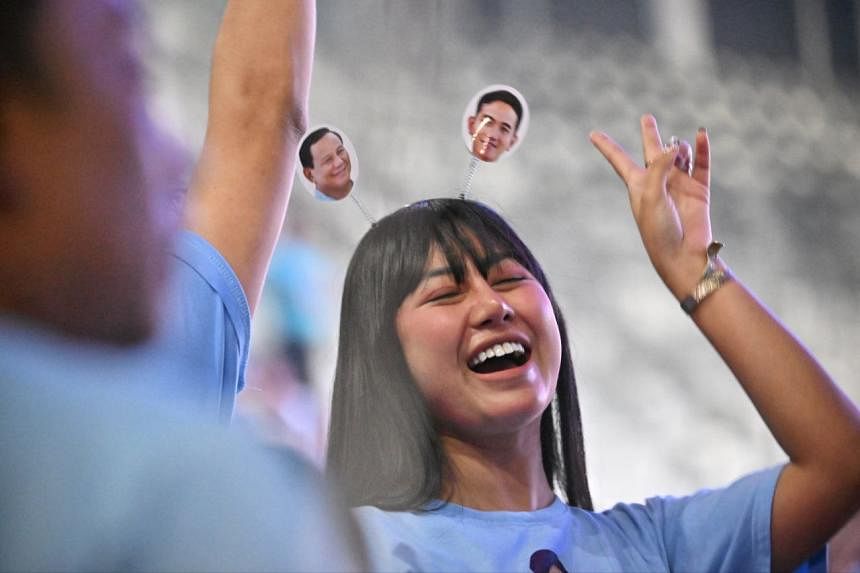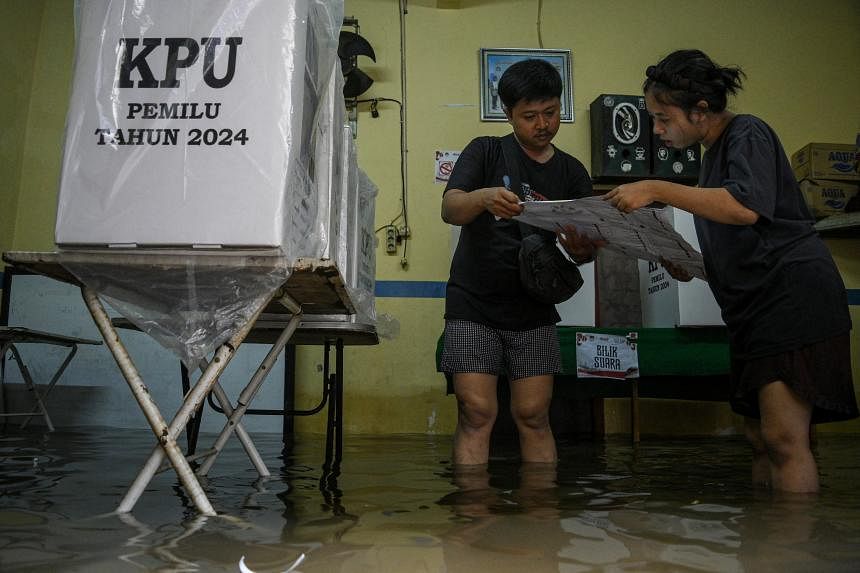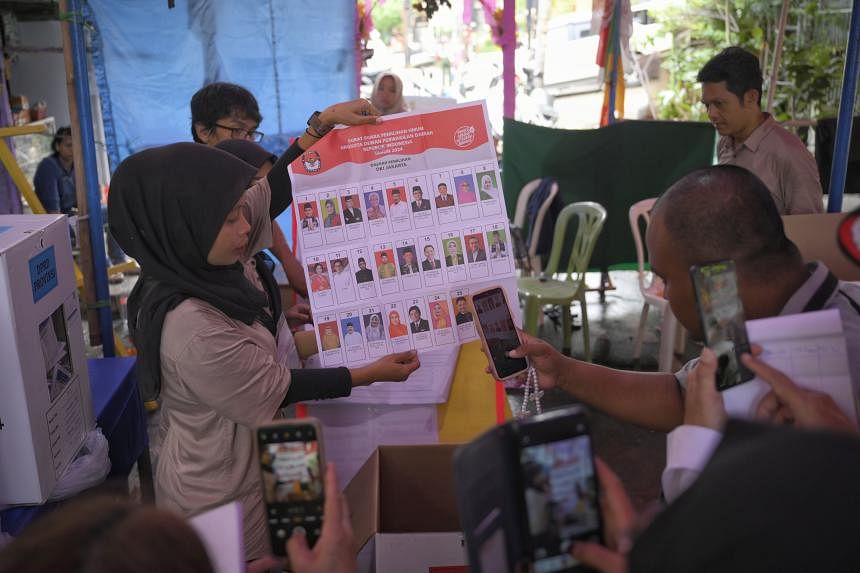Recap: How Indonesia’s polling day unfolded
JAKARTA – Mr Prabowo Subianto is set to become Indonesia’s next leader, heralding continuity for incumbent Joko Widodo’s policies, but also presenting the new president with the task of rallying a divided country after an election season marred by accusations of partiality.
The Defence Minister won a resounding victory with nearly 60 per cent of the vote in the Feb 14 polls, based on unofficial quick counts of sample votes.
Addressing his supporters at a sports stadium in central Jakarta as he claimed victory, Mr Prabowo, 72, said: “We are grateful, but we cannot be arrogant... we have to stay humble.”
Noting that “this victory must be the victory of all Indonesians”, he called for unity and said he would serve all Indonesians as president.
He also thanked previous leaders, including Ms Megawati Sukarnoputri and Dr Susilo Bambang Yudhoyono, as well as outgoing President Widodo.
“Jokowi – I know him very well, he’s a very, very, very hard worker, he doesn’t know the meaning of fatigue, his ministers are tired working for him,” he joked, using the President’s familiar name.
At around 8pm Singapore time, polling agency Poltracking Indonesia gave the Prabowo-Gibran Rakabuming Raka pair 59.17 per cent of the votes, based on three-quarters of sample votes counted.
Former Jakarta governor Anies Baswedan and senior politician Muhaimin Iskandar captured 24.5 per cent of the votes, while former Central Java governor Ganjar Pranowo and former law and security minister Mahfud MD won 16.34 per cent.
Research institute Lembaga Survei Indonesia had the Prabowo-Gibran team winning 57.36 per cent of the votes, based on 75 per cent of sample ballots counted. The Anies-Muhaimin pair garnered 25.41 per cent, while the Ganjar-Mahfud team secured 17.23 per cent.
Similarly, pollster Indikator Politik Indonesia also put the Prabowo-Gibran pair ahead of their rivals with 57.88 per cent of the votes, based on 75 per cent of sample ballots counted. The Anies-Muhaimin team had 25.66 per cent and the Ganjar-Mahfud team garnered 16.46 per cent.
Before Polling Day, surveys had shown the electability rating for Mr Prabowo and Mr Gibran hovering at above 40 per cent, leading analysts to predict a run-off vote in June.
Days before the election, it rose to over 50 per cent.
Quick counts, which take a sampling of votes at polling stations, are reputed to be fairly precise in their projections of winning margins in general elections.
Official results, to be released by the General Elections Commission by March 20, are not expected to differ significantly.
To avoid a second-round vote in a close race, a presidential candidate must win more than 50 per cent of the overall vote, and get at least 20 per cent of the vote in half of the country’s 38 provinces.
The Feb 14 presidential election marked the first leadership change in a decade in the world’s third-largest democracy, as Mr Widodo, 62, was constitutionally barred from running again after two terms in power.
He will step down in October.
The victory was a long time coming for Mr Prabowo, who was defeated by Mr Widodo in his two previous attempts for the presidency in 2014 and 2019.
But in an indication of Mr Widodo’s enduring popularity, Mr Prabowo owed much of his commanding first-round victory to his endorsement by the outgoing President, said analysts.
Mr Prabowo is expected to continue his predecessor’s economic policies, including the development of the nation’s new capital in Nusantara, East Kalimantan.
This time, the former special forces commander ditched his tough-talking persona for a gentler grandfatherly image. It won the hearts of the young electorate, who made up 52 per cent of the nearly 205 million registered voters.
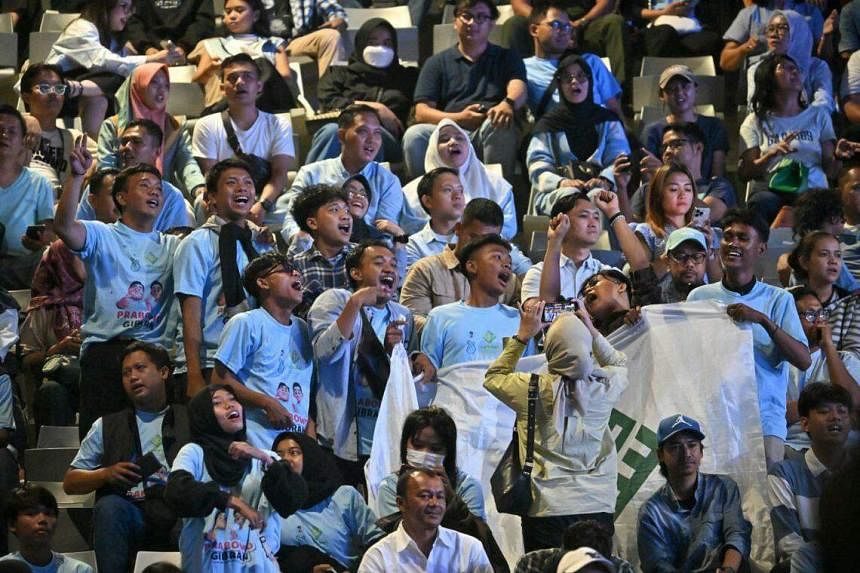
The camps of Mr Anies and Mr Ganjar have claimed to have evidence of electoral fraud, and urged their supporters to wait for official results to be announced.
Mr Surya Tjandra, a spokesman for Mr Anies’ campaign team, told The Straits Times they had collected evidence of various forms of election fraud.
“In general, we can say the hope for change is clearly here in Indonesia, but it is not reflected (in the vote results) because there have been distortions, such as the use of state apparatus to direct votes for Mr Prabowo, the politicisation of social aid and the use of intimidation,” he added.
Mr Oesman Sapta Odang, chairman of the People’s Conscience Party, a political party better known as Hanura, which is backing Mr Ganjar, told their supporters to be patient and wait for the official results.
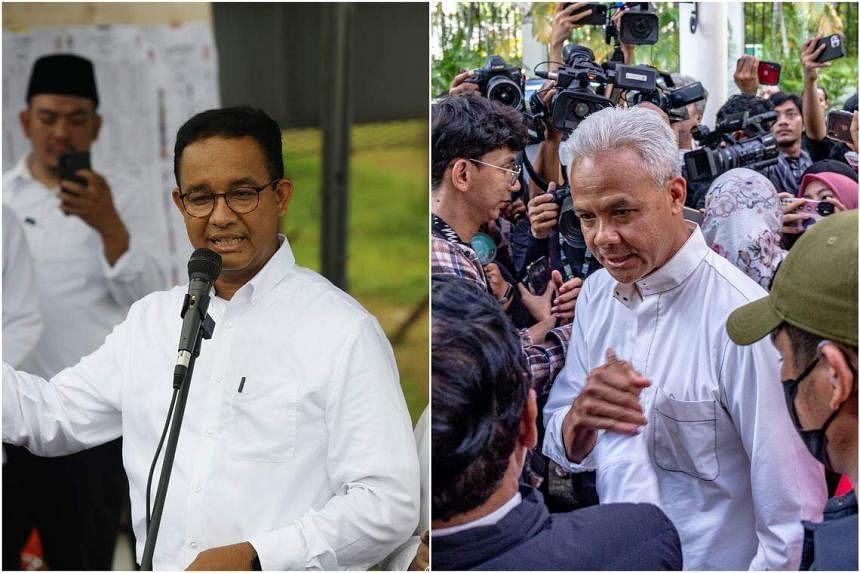
Besides electing a new president and vice-president, voters also cast their ballots for parliamentary and local representatives.
Unofficial quick counts on the evening of Feb 14 showed Indonesia’s ruling Indonesian Democratic Party of Struggle is set to maintain its dominance with the largest number of seats in Parliament.
The presidential election focused on bread-and-butter issues, such as jobs and inflation, but was also marred by controversies surrounding the candidacy of Mr Gibran, the 36-year-old Mayor of Solo and Mr Widodo’s son.
A decision by a Constitutional Court presided over by Mr Gibran’s uncle ruled in October 2023 that the minimum age requirement of 40 for presidential and vice-presidential candidates did not apply to previously elected regional leaders, thus paving the way for Mr Gibran to run.
The ruling was accompanied by accusations that Mr Widodo was plotting to build a political dynasty.
Voters began casting their ballots when the first polling booths in the east of Indonesia opened at 6am Singapore time. They closed eight hours later.
Despite a wet start to voting in the morning, with flooding forcing some to adjust their plans, the election proceeded smoothly. There were more than 800,000 polling stations across the archipelago.
